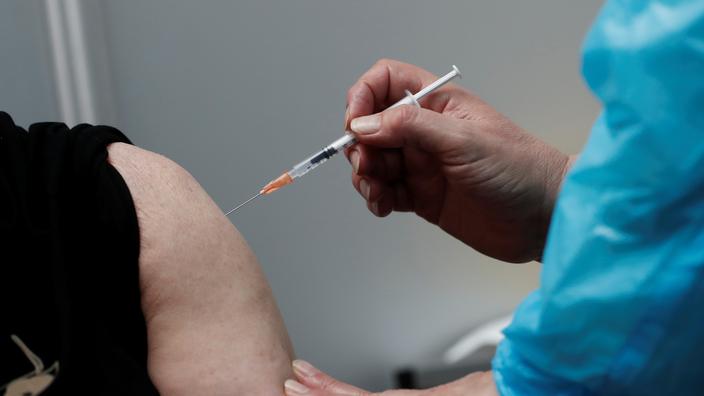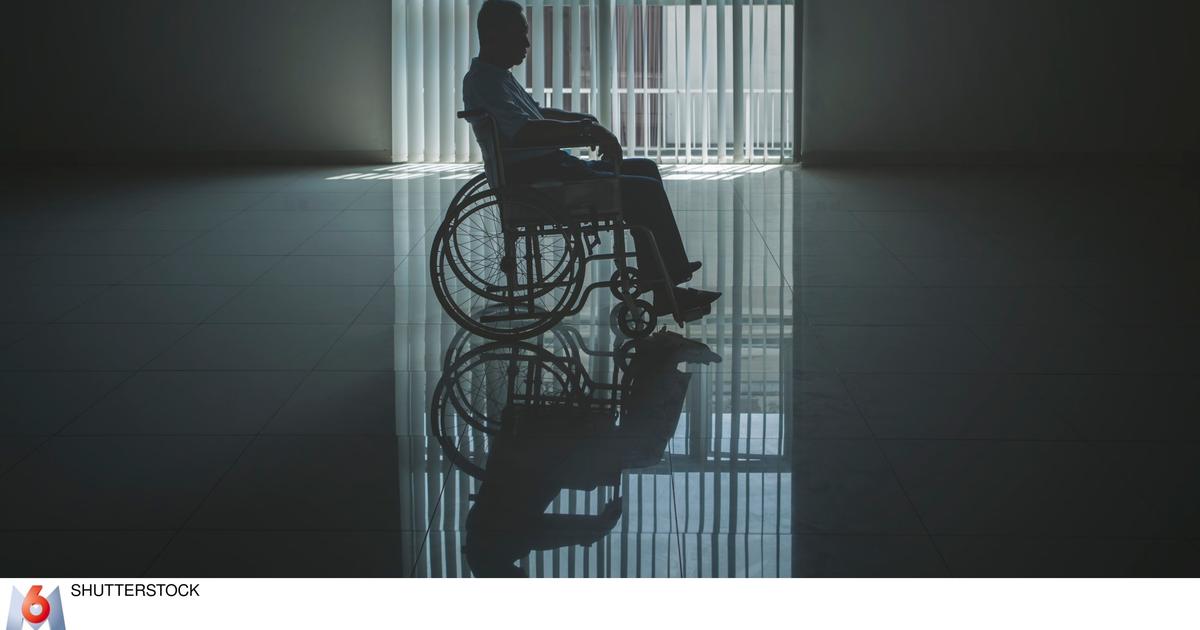“We will have to wait for the AstraZeneca vaccine”
.
This is what Yann heard to answer when he tried to make an appointment for Olivier, his father, suffering from a severe handicap.
Following a cerebrovascular accident (CVA), Olivier is constantly bedridden and cannot go to a vaccination center.
No solution will be offered to him except to wait until he can receive a dose, at home, thanks to the new vaccine which was authorized in France on Tuesday 2 February.
But the latter is only reserved for people under 65 and Olivier has 86. He is one of those who are, today, priority for vaccination, to which he has not yet law.
Read also: Closures and postponements: the galley of vaccination centers
The anecdote is not surprising for Agnès Bourdin-Busin in charge of health and policy issues within APF France handicap.
“The AstraZeneca vaccine may not be an answer for these people,” she
sighs.
Since January 18, the 60,000 people with disabilities who are in medico-social establishments such as medical homes (FAM) and specialized homes (MAS), regardless of their age, have been granted access vaccination which can be done directly at these reception sites.
But for others like Olivier who, despite their disability still live at home, you have to travel to the nearest center, which is, very often, an obstacle course.
In the case of Olivier, the octogenarian could have been accommodated if he had been able to move in a wheelchair, something impossible for him.
On the side of the center, he is told that bringing in a stretcher is not possible.
"The instruction was given to respect universal accessibility, but this is absolutely not the case"
, deplores Agnès Bourdin-Busin
.
"There are really places where accessibility for people with reduced mobility is not respected, for example with steps to access the place of vaccination, or if this is done on the first floor without a lift".
According to her,
"clear instructions should be relayed to regional health agencies (ARS), prefects and local communities involving the same care"
.
Unequal initiatives according to the departments
Here and there, initiatives emerge.
In Reims (Marne), a "Vacci'Bus" since January 19 allows people who cannot travel to be accompanied to vaccination centers.
In the Allier, it is a truck, transformed into a mobile vaccination bus, with doctors and nurses on board, which has been chartered by the departmental council.
Likewise in Lot-et-Garonne.
In Douai (North), the municipality has requisitioned shuttles, the same dedicated to the elderly to allow them to do their shopping or go to medical appointments.
All over France, local communities are investing in ensuring that everyone over 75 has access to vaccination.
In other departments, solutions are slow to emerge.
“
It
is very dependent on the territories.
In some, means have been put in place, in others we let people do what they can, ”
regrets Agnès Bourdin-Busin.
Especially since for those suffering from a very serious handicap, these devices remain insufficient.
Home help, "support" for the vaccination campaign
As close as possible to this segment of the population, the home help networks make the same observation.
"The greatest difficulty concerns the immobile people and for the moment, few options are available to them"
, attests Marc Dupont, vice-president of the UNA, national network of the home help for the elderly or with disabilities.
He underlines the role that this sector can play in the vaccination campaign.
"Our home helpers can in particular be people of trust for families and see with them the best way to organize the vaccination of their loved ones"
, agrees Hugues Victor, general manager of Adedom, a federation representing 320 associative structures working in help, home care and personal services.
“Home help is extremely well placed and we have asked the government to support this vaccination campaign
,
” he
says.
Every week, professionals in the sector discuss this with the office of the Minister responsible for Autonomy Brigitte Bourguignon.
Read also: Home vaccination, miracle honey and fake money pots: the new scams linked to Covid-19
At the center of the discussions, the question of taking charge of the provision of home helpers that will accompany the vaccination.
"Some departments will supplement the personalized autonomy allowance (APA) from two to five euros or will give dedicated funding but nothing is framed, it depends entirely on the goodwill of a departmental policy or the capacity of employers",
points out the general manager of Adedom.
“There is already a form of economic fragility of these structures.
They will therefore have a little difficulty in committing to travel if there is no funding, ”he
says.
According to him, it would take
"a strong incentive for departmental councils to urge them to bear these expenses and travel costs"
.
On the side of the Association of Mayors of France (AMF), we advocate
"financial support"
from the State, in particular
"for rural areas and those least provided especially in transport"
.
Rather than a national strategy,
"it is rather a financial or material support that the State must provide where the cost of care is important"
, explains Frédéric Chéreau, president of the AMF Health Commission and mayor. from Douai.
Develop "the go to"
More simply, for all players in the sector, the solution lies in home vaccination.
"It is possible to list ten people to be vaccinated over a morning so that the doctor can travel himself, it is achievable"
, predicts Frédéric Chéreau of the AMF.
“We have to develop the 'going to' for people with severe disabilities or who cannot move around and we have to identify them.
Town halls via communal social action centers (CCAS) and general practitioners must target all these people, ”
confirms Agnes Bourdin-Busin.
"Moving someone in a stretcher, which is more in winter with all that it generates stress, knowing that you have to do it twice, it's complicated
".
She calls for the deployment of
"mobile teams",
"
which is not the case today".
Vaccination at home is developing, it is said on the side of the cabinet of Sophie Cluzel, Secretary of State for People with disabilities.
In the meantime,
"when they have no possibility of going to a vaccination center and they come under the vaccine category, people can call on the 360 device"
.
This national toll-free number (0 800 360 360) was set up in the context of the crisis for people with disabilities and family caregivers.
Initially scheduled for January 2021, its implementation was brought forward to last June due to the health crisis.
Once online,
"the person is redirected to an antenna which coordinates all the actors around the handicap in order to find solutions to be vaccinated at home", one
explains briefly.
90 departments are already connected to this device which was not, however, originally intended to respond to problems related to vaccination.
Read also: Covid: is France at risk of a vaccine shortage?
“It cannot be the only solution”
, comments Agnès Bourdin-Busin of APF France handicap.
Much remains to be done.
And despite all the initiatives that are emerging, another point tarnishes these advances: the lack of doses.
"This
is the problem we are currently facing"
, deplores Lucile Pluchart, deputy director general of the services of the Vaucluse department, in charge of the solidarity pole.
"Like many departments, we would like to be able to set up a certain number of initiatives, but the reality on the ground is catching up with us".
A lack that can not come to disrupt the vaccination schedule assured Emmanuel Macron, promising that all French people will be vaccinated at the end of the summer.













